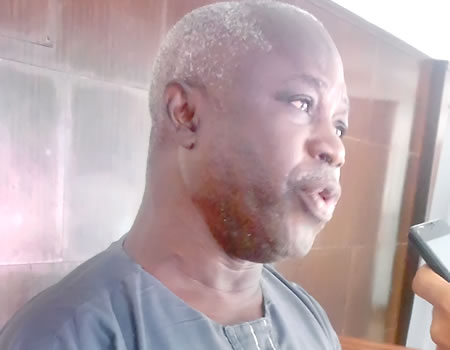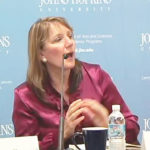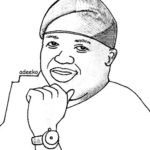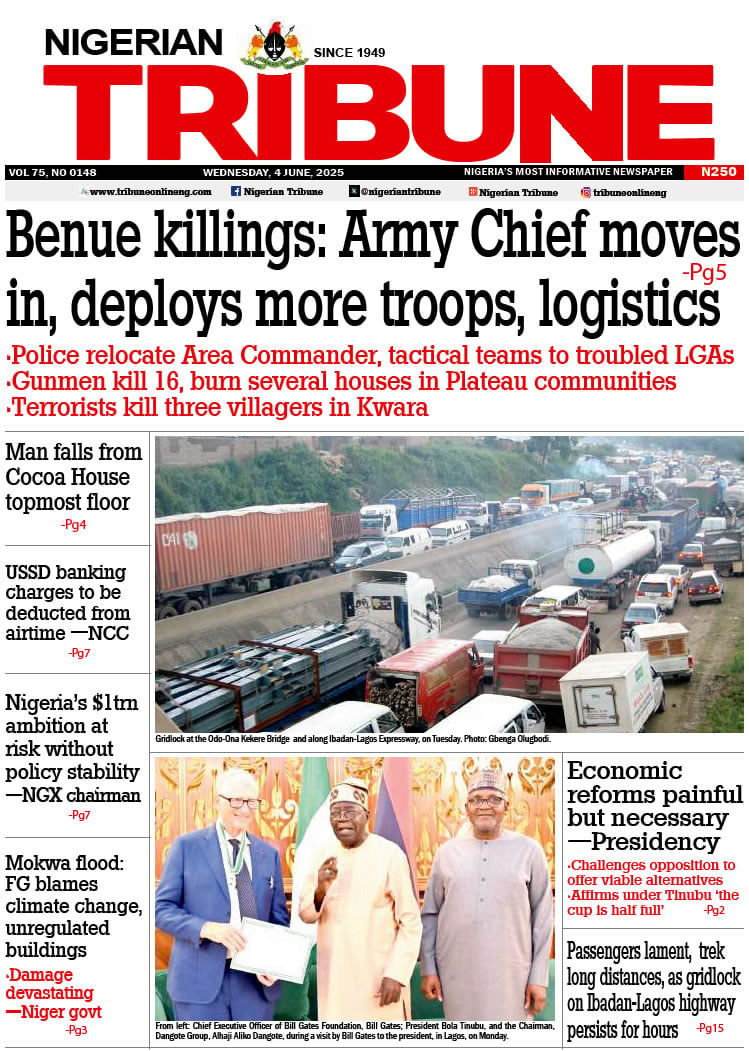THE 2019 general election is about seven months away. What are your some of your apprehension and fear, in view of the apparent gathering storm in the political circle, especially among the key gladiators?
You see some promising scenarios but at the same time, there are some frightening scenes, especially when it comes to the issue of security. What is happening is really frightening. We may think that it is not so national; that it is confined, but at least, you can see that in some parts of this country, people feel very unsafe; they question their nationality; they question the competence of government to protect them. So, these are frightening things. But at the same time, I think we can see some promises that the coming election would bring in some changes. Don’t forget that the Not-too-young-to-run law is already on and one hopes the young ones would take advantage of that. You can see some fresh faces. But, my main concern is the way that ethnic groups are mushrooming; groups that are based on geopolitical divisions in the country. That gives the impression that we are not united; there is no consensus and that the voting pattern may be based on ethnicity so that people will not look at the competence; capacity of people who are jostling for power to be able to deliver and I think that’s very unfortunate.
ALSO READ: Govt wasted 3 years creating crises across the board —Saraki
A lot of persons have accused the leadership of being responsible for the ethnic cleavages you talked about. Do you not agree that the problem is a function of the body language of the current leadership in the country, especially on critical national issues relating to the fundamental objectives of government?
No, I don’t think so. I think it is something that all our political actors, the big politicians, they are really interested in taking advantage of the natural ethnic lines; the ethnic lines that have been there. God created the Yoruba; created the Hausa; so there are major political actors who are trying to exploit that. It is not just those in power; those in opposition are also doing it. They are now even bringing religion into it. You now find some religious groups saying ‘you must not vote for people of this religion.’ So, some people are more interested in dividing us than uniting us. It’s a common national problem.
Then, how did we get to such stage, as a lot of Nigerians feel the country had to a large extent overcome such primordial factors and sentiments?
It is part of the selfishness of the Nigerian political elite. They use ethnicity and religion as tools of political mobilisation for their own selfish interests. So, the Nigerian political class is very selfish and I think that’s the issue. They are not nationalistic enough.
For the past weeks, you beamed a serious light on the activities of the media in Nigeria, what are some of your observations; how has the media been responding to the disturbing trend and blight you have just talked about?
I think the media have also contributed to the divisions in the way they carry stories. When you look at the Nigerian media, whether rightly or wrongly, media in this part of the country, or owned by a particular people have been pigeon-holed in this ethnic divisions. So, people now talk about the Lagos/Ibadan press; the Arewa press; the Igbo press; we are not looking at national media organisations. It is part of the problems we are talking about.
Notwithstanding such perceived lapses, the media constitute major stakeholders as the watchdog of the Nigerian society. So, what should we do so that the media practitioners can get it right, so to speak, before and after the elections?
The people media practitioners must see themselves as the organs to build a consensus and not contestations. These days, you see headlines such as one ethnic group says this against another. I think there is need for restraint. Let’s focus on issues that unite the nation; similarities we share, so that we can build consensus and move the country forward.
The media is part of the larger Nigerian society, so it is not insulated from the vagaries of the time, especially in the economic front. How can it achieve a delicate balance given the current circumstances?
The media is distressed; it is part of the problems. The economic distress of the media is because some people believe that some people in the industry are not really addressing relevant issues. The media is talking to the elite; they are not carrying stories that concern the ordinary people. Look at the newspapers, the people that are quoted; the sources of news are all the big political actors. Where are the ordinary people; where are the market women? Where are the farmers? Let’s hear their voices in the media. Let journalists go out and interview these people; let them talk about their own concern. You may find out that if we interview these people, some of the issues that we think that are important may not become relevant. We must realise that the issues that are promoted by the political elite are issues that would serve their own interest, and not necessarily the interest of the common man. Let’s hear the voice of the common man.
The media needs revenue to remain in business and the common man does have the capacity to advertise, the major source of funds the media needs to remain afloat in a depressed economy?
The media is having problems because the people who should patronise them are not doing so. The attitude of the ordinary people seems to be ‘let them be working with the elite and let see how far they can go.’ Maybe, if there are some changes, the economic situation of the media may change too.
The media industry has become highly competitive, with traditional media like the print literally gasping for breath. How do you see the future of newspapers against the backdrop of surging social media platforms in the entire media space?
Somebody said it is the media that is in problem and not the news. People will still need the news; so that means that the traditional media must find a way of taking their messages; their productions also to the social media. People want to read the news on the go; young people. If you look at the population of this country today, it is overwhelmingly a very useful population; they want to read their news on the go; on their phones, on their laptops; so, the traditional media must go and meet them there. It is a marketing thing; you must produce what the consumers want. You can’t sit down in your office and just be producing something and I think people will just buy. Our media organisations must try to adopt some marketing orientation.
A lot of Nigerians claim the difference among the 68 parties that might contest the 2019 elections is between six and half a dozen, going by their constitutions and manifestoes, unlike what obtained during the First and Second Republics in particular. With the benefit of hindsight, do you agree to such claim?
Well, you may look at the sharp difference, for instance, in the Unity Party of Nigeria (UPN) of those days with its five cardinal programmes; very specific and adequately presented and you don’t have that in the existing parties. But, I would still say there are differences and we need to look at the defined letters. That’s the role of the media; let’s look critically at their manifestoes and try to tease out what differentiates Party A from Party B. These are some of the things we need to do to assist the electorate. You cannot continue to say all the parties are the same. There should be some differences.
The purchasing power of the average Nigerian voter today is weak. Isn’t this capable of making him place premium on survival and stomach above voting in the most qualified and competent in the next elections? How should the problem be tackled before the polls?
I agree with you that they can easily be bribed and compromised. We need to continue to educate our people that if you collect a bowl of rice today, that fellow that gave you a bowl of rice is going to take millions from the common purse, which is against your interest. You will eat the kongo of rice within a week but that man will take millions within the next four years. So, who is benefitting? It is definitely not the common man. So, the guy who is giving you a bowl of rice knows that what he is doing. So, they want to make sure you are blind to their massive looting of the treasury by giving you that bowl of rice. So, we need to educate the people that in our long term interest, we should vote according to our conscience; according to the capacity of the candidates. The way we judge these people is, can they perform? It should not just because somebody comes and distributes money on the Election Day. Even the fellow that is distributing money on the Election Day, we should see him as a thief. Where did he get that money?
You talked about state-owned media becoming ineffectual, while the privately owned ones floated by politicians are waxing strong? What exactly do you have at the back of your mind?
By their interference, our politicians more or less killed the state-owned media because people now see them as no longer credible. If you start your news with the governor; the governor’s wife; then the deputy governor; all the stories are about the governor and politicians; people now see the medium as a megaphone of the governor or what have you. And because our politicians know that people have this perception that state-owned radio and television stations are not credible, those in government now take the state money that should have been used to those organisations they own to the private stations. It is part of the criminality of the Nigerian political elite.






